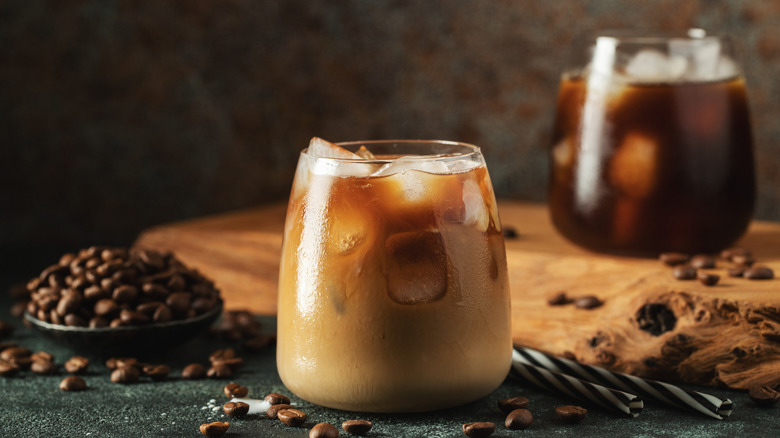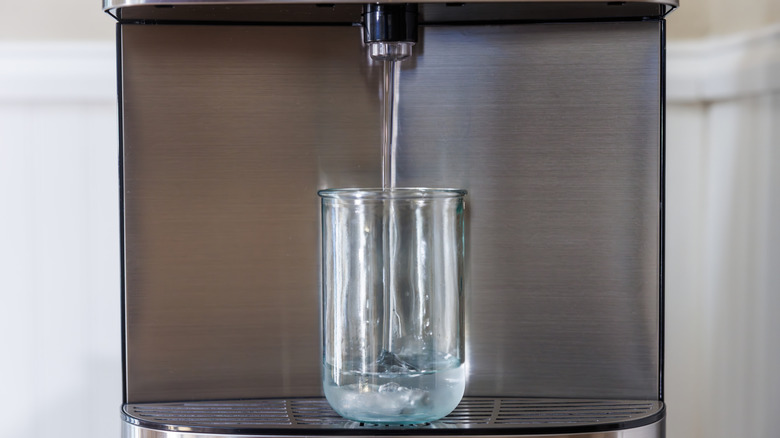The Absolute Best Water To Use For Iced Coffee (And Why It Matters)
It goes without saying that making an iced coffee at home starts with good quality coffee beans. However, the other key ingredient in this refreshing pick-me-up (apart from the ice!) is the water used to make the coffee itself. We asked coffee expert Mathew Woodburn-Simmonds to clue us in on the absolute best water to use for iced coffee and why it matters so much.
"Filtered water is generally the best choice for brewing iced coffee," Woodburn-Simmonds explains, "though it depends hugely on where you are and what the mineral content of your tap water is. Most people will want to start with a blank slate.
"Ensuring your water has had the various chemicals and minerals removed from it before starting will help you get a clean, rich flavor," he continues. "If you have 'hard' water, with lots of minerals like calcium or magnesium in it, [it] can affect extraction, leaving you with dull or bitter coffee. Starting with good quality water is key to getting the best flavor, as your drink is mostly water."
Filtered water is simply water that's been run through a carbon filtration system in order to remove contaminants and chemicals, like chlorine and zinc. This process is believed to improve the taste of the water while reducing its hardness, resulting in better-quality teas and coffees with a smoother character.
Water with a heavy mineral content can hamper the coffee extraction process
The best coffee is made with water that's free from chlorine, iron and sulphur compounds; a high presence of these minerals can affect the flavor, balance, and aroma of a cup of Joe.
Woodburn-Simmonds advises avoiding "water that has been treated with large amounts of chemicals to clean it, such as chlorine, and any water that you wouldn't happily drink straight from the tap. Outside of water that is actively unhealthy to consume, the heavy mineral content waters are the worst for getting great extraction and flavor from your iced coffee."
Coffee that's under extracted can have a sour note whereas coffee that's over extracted can taste bitter. Using filtered water reduces the variables that could affect the flavor of your coffee, which helps to hit the perfect extraction sweet spot in the middle.
Some of the other mistakes you might be making with your iced coffees are using leftover cold coffee that's developed a bitter taste, or selecting a light roasted coffee instead of a darker and richer variety. Bear in mind that the ice in an iced coffee will dilute the flavor of your drink, so use a medium to dark roast to ensure your beverage retains some flavor and punch. The same goes if you want to blend up your classic iced coffee for a refreshing caffeinated treat — ice and milk will mellow your coffee so don't be shy about starting strong.

